What is loading ramp?
A hydraulic loading ramp is a piece of equipment used to facilitate the loading and unloading of goods or vehicles onto a truck or trailer. It is usually made of pressure-resistant steel and features a hydraulic system that allows for easy adjustment of the ramp's height and angle. This makes it easier to bridge the gap between the truck bed and the ground, allowing for safe and efficient loading and unloading operations. These ramps are often used in warehouses, distribution centers, and ports to streamline logistics processes.
The height and angle of the loading ramp are adjusted by the hydraulic system. The hydraulic system consists of a hydraulic pump, oil tank, oil pipe, oil cylinder and control valve. When the operator manually turns on the hydraulic pump, the hydraulic oil is pumped into the oil cylinder, causing the piston in the oil cylinder to move upward, thereby increasing the height of the ramp. By adjusting the control valve, the lifting speed and height of the oil cylinder can be controlled to ensure that goods or vehicles can enter and exit smoothly.
Specifications Table
| Specification | Description |
|---|---|
| Ramp Length | 6m - 12m (20ft - 40ft) |
| Width | 2m - 2.5m (6.5ft - 8.2ft), with custom widths available |
| Load Capacity | 6,000kg - 15,000kg (13,200lbs - 33,000lbs) |
| Material | Heavy-duty steel with anti-slip diamond plate surface |
| Height Range | Adjustable from 1m to 1.8m (3.3ft - 5.9ft) to match dock heights |
| Hydraulic System | Manual or electric hydraulic lift system for height adjustment |
| Safety Features | Safety chains, side rails, and anti-slip surface |
| Wheel Type | Solid rubber wheels for easy mobility and positioning |
| Surface Coating | Rust-resistant powder coating for durability in various weather conditions |
| Forklift Compatibility | Designed for safe operation with standard forklifts |
| Weight | 1,000kg - 2,500kg (2,200lbs - 5,500lbs) |
| Standard Compliance | Meets ISO 9001 and CE standards for safety and quality |
| Warranty | 1-year warranty with optional extended coverage |
Price List
| Model | Load Capacity | Ramp Length | Price Range (USD) |
|---|---|---|---|
| Standard Loading Dock Ramp | 6,000kg (13,200lbs) | 6m (20ft) | $3,000 - $4,500 |
| Heavy-Duty Ramp | 10,000kg (22,000lbs) | 8m (26ft) | $5,000 - $7,000 |
| Extra-Wide Ramp | 8,000kg (17,600lbs) | 6m (20ft) | $4,000 - $6,000 |
| Long-Length Model | 12,000kg (26,400lbs) | 10m (33ft) | $7,500 - $10,000 |
| High-Capacity Ramp | 15,000kg (33,000lbs) | 12m (40ft) | $10,000 - $13,000 |
| Customization Fees | Varies | Varies | Additional $500 - $1,500 for custom sizes or features |
Note: Prices may vary depending on location, shipping costs, and additional customization requests.
This overview provides detailed specifications and pricing information for warehouse loading dock ramps, ensuring that businesses can find the right solution for their specific needs. The robust design and safety features of these ramps make them ideal for efficient and safe loading and unloading operations in various warehouse settings.
How many types of hydraulic loading ramps are there?
Hydraulic loading ramps can generally be divided into two types: fixed and mobile. Fixed loading ramps are installed in fixed locations and are usually used in fixed loading and unloading areas. Fixed loading ramps are mostly used in pre-made pits or places with height differences from the pickup area. Fixed loading ramps rely on electricity for lifting and lowering. Mobile loading ramp: it is a cargo loading and unloading auxiliary equipment used in
conjunction with forklifts, The height can be adjusted according to the height of the car
compartment. With the help of this equipment, the forklift can directly drive into the interior
of the car for batch loading and unloading operations. It only needs one person to operate
and no external power supply is needed to realize safe and fast loading and unloading of
goods, which can not only reduce your labor intensity, but also double the loading and
unloading. Improve operating efficiency, speed up material circulation, and obtain greater
economic benefits.
This article will focus on the mobile loading ramp which has the largest market demand and the best sales.
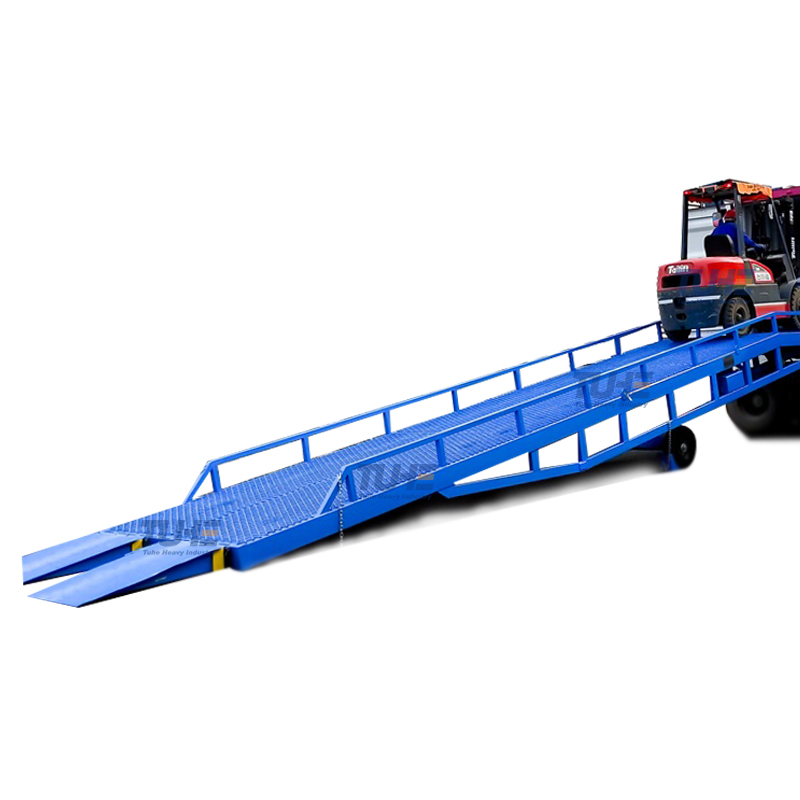
What are the characteristics of Mobile loading ramp and Fixed loading ramp?
The features of Mobile loading ramp are as follows:
Mobility: The loading and unloading ramp can be easily moved to different locations to adapt to different loading and unloading needs.
Lightweight and flexible: Made of lightweight materials, it is easy to carry and operate, and can quickly adjust the slope and height.
Safe and stable: The loading and unloading ramp is designed to be stable, with a non-slip surface and side guardrails to ensure the safety of goods and personnel.
Improve efficiency: By using mobile loading and unloading ramps, cargo loading and unloading operations can be carried out quickly and efficiently, improving work efficiency.
Versatility: The loading and unloading ramp is suitable for various loading and unloading places, such as warehouses, freight stations, etc., and can meet the needs of different places.
Strong durability: Made of high-quality materials, it has a long service life and can withstand weight and frequent use.
The characteristics of Fixed loading ramp are as follows:
The characteristics of Fixed loading ramp include:
Stability: Fixed on the ground, will not move or shake, providing a more stable loading and unloading environment.
Long-term use: Installed in a fixed position, suitable for places with long-term use, such as warehouses, factories, etc.
Strong carrying capacity: Fixed loading ramps are usually designed to be more durable and can withstand greater weight.
High safety: With anti-slip surface and side guardrails to ensure the safety of goods and personnel.
Wide applicability: Suitable for various loading and unloading places, fixed loading ramps of different specifications and sizes can be customized according to needs.
Easy maintenance: Compared with mobile loading and unloading ramps, fixed loading and unloading ramps do not need to be moved and adjusted frequently, and maintenance and maintenance are relatively simple.
Improve efficiency: Fixed loading and unloading ramps can improve the efficiency of cargo loading and unloading and reduce manpower and time costs.
How can we get the loading ramp that suits us?
First of all, welcome to consult our equipment. Secondly, our loading ramp is customized for you according to the load you need. Whether it is equipment over 20 tons or under 20 tons, we can produce it according to your requirements. In addition, the size of the equipment, the material of the table, etc. can also be customized according to needs.
After you have selected the equipment that suits you, we will make a quotation. If you think it is suitable, we will discuss the next step of transportation. Our shipper can deliver the goods to your port or to your door according to your needs.
How to Use Warehouse Loading Dock Ramps: A Beginner’s Guide
Warehouse loading dock ramps are essential tools for loading and unloading goods safely between trucks and docks. They provide a smooth, secure transition for forklifts and pallet jacks, allowing for efficient movement of materials. For beginners, understanding the correct way to use a loading dock ramp is crucial to ensure safety and operational efficiency. This guide outlines the step-by-step process for using a warehouse loading dock ramp safely.
Step-by-Step Guide for Using a Warehouse Loading Dock Ramp
Inspect the Ramp Before Use
Check for Damage: Inspect the ramp for any visible damage, such as cracks, loose parts, or wear on the hydraulic system.
Verify Capacity: Ensure that the ramp’s load capacity is suitable for the weight of the forklift and the cargo being moved. Overloading the ramp can lead to accidents and equipment damage.
Ensure Clean Surface: Make sure the ramp surface is free from debris, oil, or water that could cause slips.
Position the Ramp Correctly
Align the Ramp: Position the ramp securely against the edge of the loading dock. The lip of the ramp should rest flat on the dock surface to create a stable connection.
Use Safety Chains: Secure the ramp using the safety chains provided. Attach the chains to anchor points on the dock or vehicle to prevent the ramp from shifting during use.
Adjust Ramp Height: If the ramp has a hydraulic lift system, use it to adjust the ramp height so that it aligns perfectly with the dock or truck bed. This ensures a smooth transition for forklifts.
Ensure Ramp Stability
Check the Angle: Make sure the angle of the ramp is not too steep for safe forklift operation. A moderate slope ensures easier movement up and down the ramp.
Verify Locking Mechanisms: If the ramp has locking mechanisms or stabilizers, ensure they are engaged before use. This adds additional stability to the ramp.
Drive Safely Up and Down the Ramp
Approach Straight-On: When driving a forklift or pallet jack onto the ramp, approach it straight-on to prevent the equipment from slipping or tipping over.
Maintain a Slow Speed: Drive slowly up and down the ramp to maintain control. Sudden movements can cause the forklift to lose balance.
Keep the Load Low: Keep the load on the forklift as low as possible when going up or down the ramp. A lower center of gravity helps maintain stability and prevents tipping.
Unload or Load Cargo
Position Carefully: Once the forklift is on the truck or dock, position the load carefully in the desired spot. Ensure that the load is evenly distributed to prevent instability.
Monitor the Load: Be aware of any shifting or movement in the load while operating on the ramp, and adjust as necessary.
Remove the Ramp After Use
Lower the Hydraulic System: If using a hydraulic ramp, lower it completely before removing it from the dock or truck.
Detach Safety Chains: Unhook the safety chains that secure the ramp in place.
Move the Ramp Safely: Use the ramp's wheels or mobility system to move it back to its storage position.
Safety Tips for Beginners
Always Use Personal Protective Equipment (PPE): Wear safety gear such as gloves, safety shoes, and a helmet when operating a forklift on a ramp.
Never Exceed the Ramp’s Load Capacity: Always be aware of the weight limits of the ramp, including the weight of the forklift and the cargo.
Avoid Using the Ramp in Bad Weather: Rain, snow, or ice can make the ramp slippery. Avoid using the ramp in these conditions, or ensure it is properly dried and cleared before use.
Be Aware of Surroundings: Always check for other workers or obstacles before moving a forklift onto or off the ramp.
Using a warehouse loading dock ramp correctly is essential for maintaining a safe work environment and ensuring the efficient transfer of goods. By following these steps, beginners can learn to use loading dock ramps safely and effectively. With proper inspection, positioning, and operation, these ramps can greatly improve the speed and safety of loading and unloading operations. Remember, safety is always the top priority when working with heavy equipment and ramps.
We are a supplier with very rich export trade experience and can provide you with one-stop service.
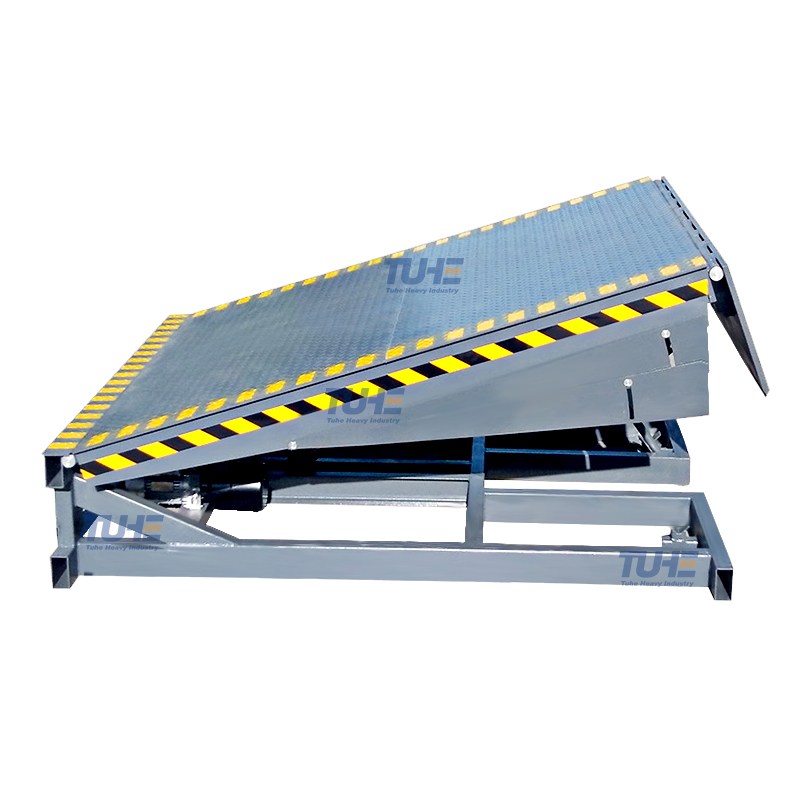
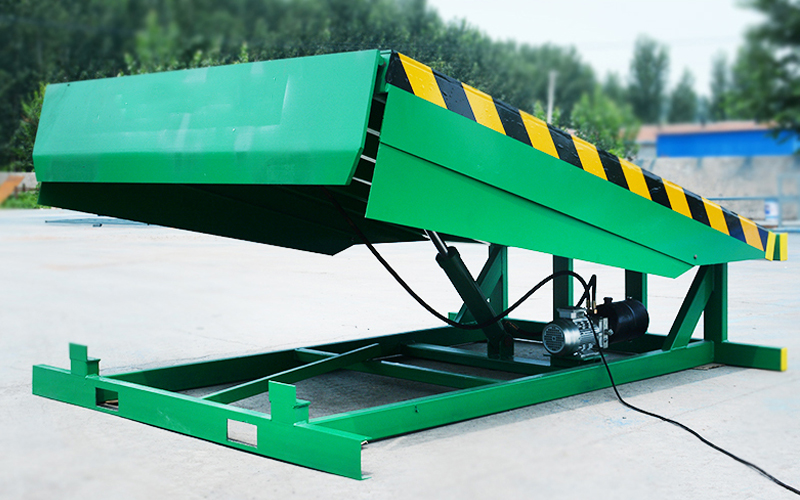
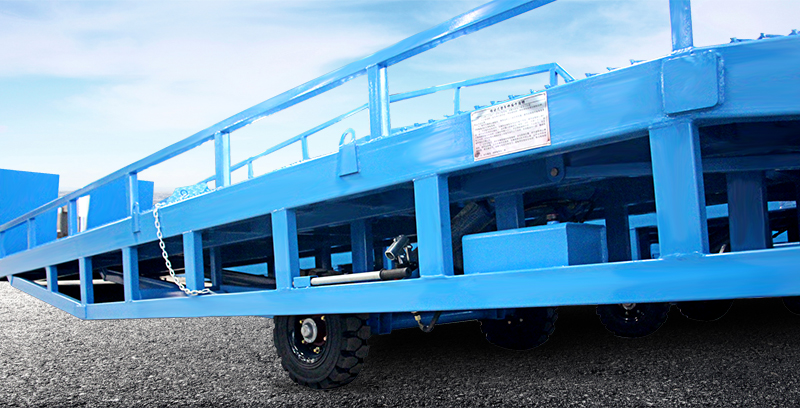
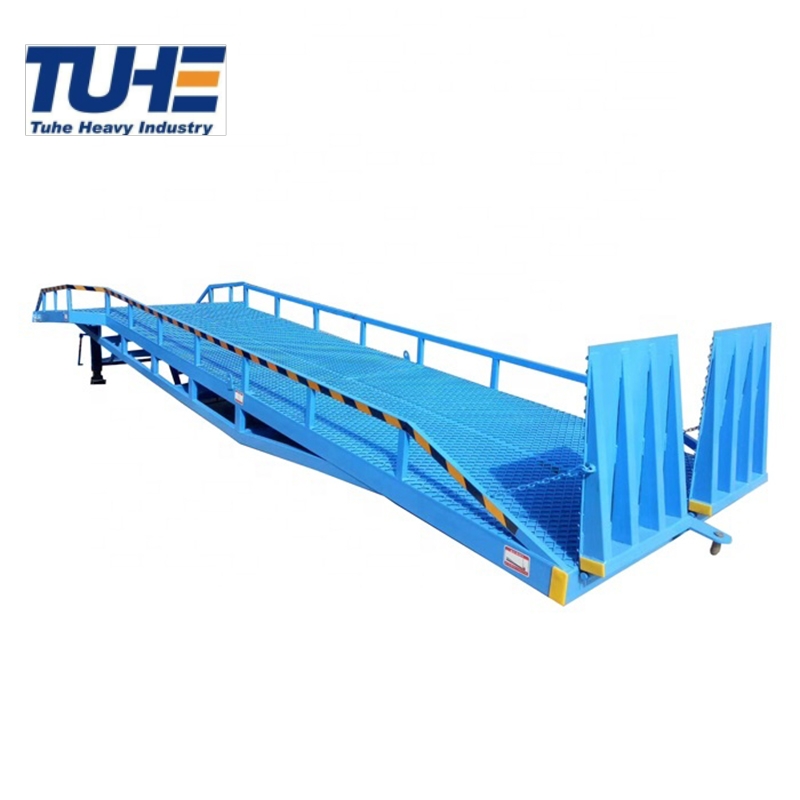
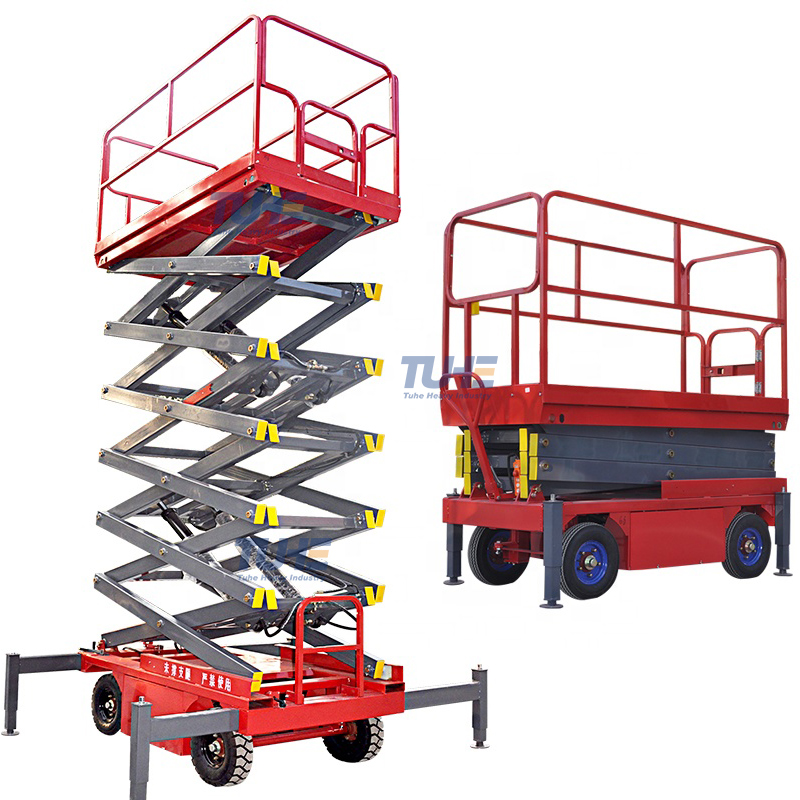
660.webp)
503.webp)